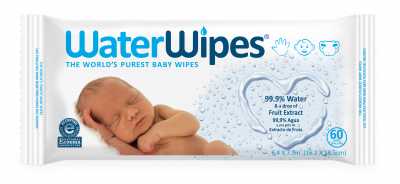
05 Apr WaterWipes Care Bundle Linked to Reduced Facial Injuries from PPE During COVID Pandemic
MedicalResearch.com Interview with:

Jill Sommerville
Jill Sommerville M.Sc.
Director of Medical at WaterWipes
MedicalResearch.com: What is the background for this study? How does the WaterWipes product differ from other cleansing products?
Response: During the first months of COVID-19, Professor Zena Moore, SWaT Researcher Centre Director and Head of the RCSI School of Nursing and Midwifery, became acutely aware of staff reporting facial injuries, such as pressure ulcers, bruises, and skin tears. Healthcare workers were and still are experiencing these injuries due to the prolonged wearing of protective equipment during the pandemic and especially the wearing of medical face masks. These injuries can be painful for staff and injuries in some cases can put them at increased risk of infection. This study was the first of its kind carried out at the height of the pandemic in an effort to help mitigate the occurrence of Facial Pressure Injuries (FPI). WaterWipes® was chosen as the cleansing wipe in the study as the research team identified it as the purest wipe on the market, and with minimal ingredients it would be suitable for the faces of a wide variety of frontline healthcare workers.
MedicalResearch.com: What are the main findings?
Response: The main finding showed that prior to using the care bundle, 29% of respondents developed a Facial Pressure Injury, whereas after using the care bundle only 8% of respondents developed such an injury. The analysis revealed that when using the care bundle, staff were almost five times less likely to develop a FPI. In a secondary finding, respondents reported the bundle as easy to use, safe and effective.
MedicalResearch.com: What should readers take away from your report?
Response: The results tell us that when skincare is prioritized and a systematic preventative care bundle approach is adopted, there are clear benefits for the frontline workers and the workplaces involved. The Care bundle was designed in line with international best practices and consisted of cleaning the face with WaterWipes® baby wipes, using a moisture cream and protective tape, and cleansing with WaterWipes® baby wipes after the PPE is removed.
MedicalResearch.com: What recommendations do you have for future research as a result of this work?
Response: This study that was successfully completed in a busy Acute hospital at the height of the pandemic showed very promising results. The recommendation is to extend the care bundle to those frontline workers using PPE in other settings such as long-term residential units and care facilities.
MedicalResearch.com: Is there anything else you would like to add?
Response: WaterWipes was delighted to have supported the RCSI on this important study and proud that the use of WaterWipes helped reduce the occurrence of Facial Pressure Injuries in frontline COVID-19 healthcare workers. At WaterWipes, we have a strong medical heritage and are dedicated to investing in new research and development to support healthcare professionals around the world.
Citation:
Zena Moore, Natalie L McEvoy, Pinar Avsar, Linda McEvoy, Gerard Curley, Tom O’Connor, Aglecia Budri, Linda Nugent, Simone Walsh, Frank Bourke, and Declan Patton Journal of Wound Care 2021 30:3, 162-170
JOIN OUR EMAIL LIST
[mailpoet_form id="5"]We respect your privacy and will never share your details.
[last-modified]
The information on MedicalResearch.com is provided for educational purposes only, and is in no way intended to diagnose, cure, or treat any medical or other condition. Always seek the advice of your physician or other qualified health and ask your doctor any questions you may have regarding a medical condition. In addition to all other limitations and disclaimers in this agreement, service provider and its third party providers disclaim any liability or loss in connection with the content provided on this website.
Last Updated on April 5, 2021 by Marie Benz MD FAAD
